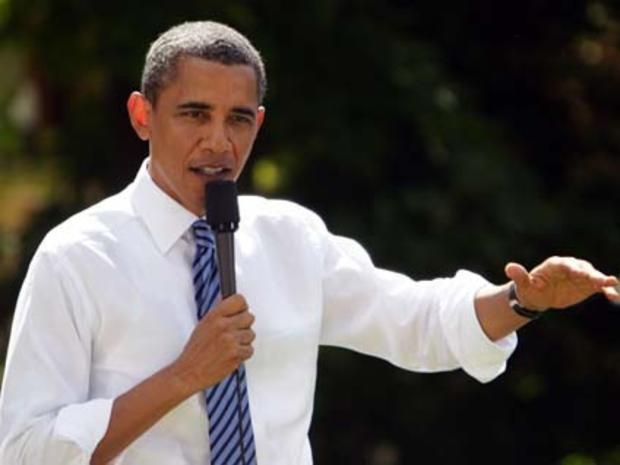House Votes to End Public Financing of Presidential Campaigns
The Republican-led House voted Wednesday afternoon to end public financing of presidential campaigns and conventions. The vote was 239 to 160.
"Congress must prioritize the way that taxpayer dollars are spent," Laena Fallon, a spokesperson for Majority Leader Eric Cantor, said. "The reality is that political campaigns operate entirely differently today than they did in the 1970's. Technological advancements have fundamentally altered modern elections so that all candidates have the opportunity to communicate to broad audiences and secure the resources needed to run a successful campaign, a fact that was proven by President Obama and his team."
Like the health care repeal bill passed through the House last week, the bill has little chance of making it through the Democrat-controlled Senate.
The public financing system was first created following the Watergate scandal more than three decades ago, CBS Radio Capitol Hill correspondent Bob Fuss reports, with the aim of reducing the influence corporations and wealthy individuals have in politics. Democrats argue that eliminating the system would increase the influence of special interests and make it nearly impossible for a lesser-known candidate to get elected.
Under the public financing system, which is funded through an optional $3 donation into the system from taxpayers, candidates who qualify can get matching funds in a primary as well as funding for a general election if they become their party's nominee.
The White House "strongly" opposed the bill in a statement Monday, arguing that the public financing system should "be fixed rather than dismantled."
The effect of eliminating the system "would be to expand the power of corporations and special interests in the Nation's elections; to force many candidates into an endless cycle of fundraising at the expense of engagement with voters on the issues; and to place a premium on access to large donor or special interest support, narrowing the field of otherwise worthy candidates," the White House said.
In the 2008 presidential cycle, Mr. Obama turned down public financing because he concluded that he could raise more money on his own. He was the first major-party general election candidate not to use the system since it began in 1976. (GOP nominee John McCain did take the funds, and spent more than $84 million in taxpayer dollars in his general election campaign.) Republicans pointed to the president's example to argue the system has outlived its usefulness.
Oklahoma Republican Tom Cole, who sponsored the bill, said the system amounts to "the very definition of frivolous Washington spending," according to the Associated Press. The Congressional Budget Office said ending the program would save the government $617 million over 10 years. (The budget deficit for 2011 is projected to hit $1.5 trillion.)
Liberals already upset over the effects of the Supreme Court's Citizens United decision, which allowed for more corporate spending on elections, are livid about what they see as an attempt to further increase corporate influence on the political system.
"This stunt isn't about cutting costs--it's about giving special interests more power in Washington, D.C.," David Donnelly, national campaigns director for Public Campaign Action Fund, said in a statement before the vote. "Instead of focusing on jobs and the economy, the Republican leadership wants to move away from elections of, by, and for the people, and towards elections bought and paid for by corporate donors."
